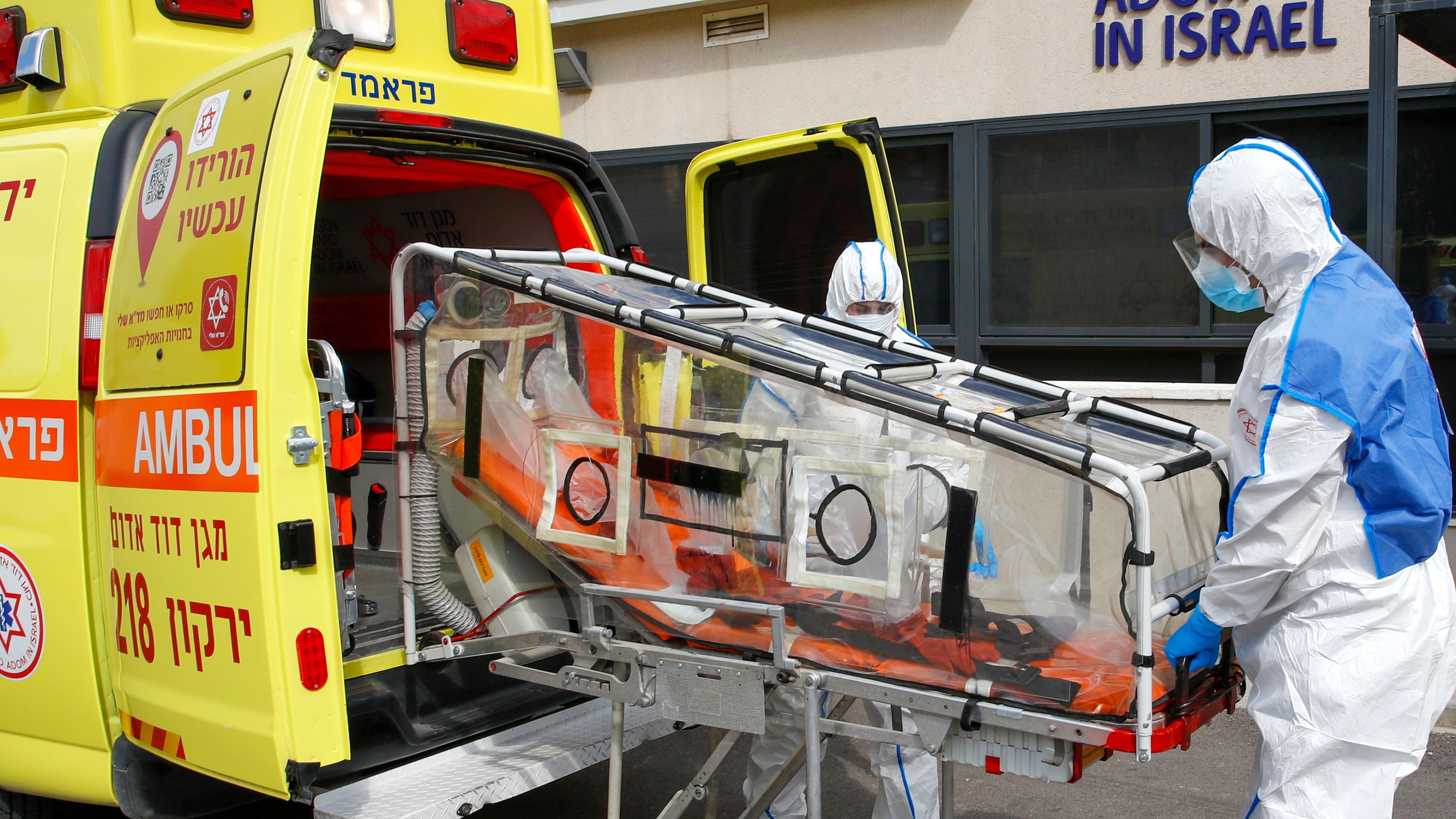Coronavirus: what is Pluristem’s placenta-based cell therapy?
Seven critically ill patients reportedly saved by experimental treatment option

A free daily email with the biggest news stories of the day – and the best features from TheWeek.com
You are now subscribed
Your newsletter sign-up was successful
Seven critically ill coronavirus patients in Israel have survived the illness after being treated with a new form of cell therapy.
The patients were given a placenta-based product provided by Pluristem, the Israeli company behind the treatment.
The Jerusalem Post reports that the patients were treated at three different Israeli medical centres for one week and were suffering from acute respiratory failure and inflammatory complications associated with Covid-19.
The Week
Escape your echo chamber. Get the facts behind the news, plus analysis from multiple perspectives.

Sign up for The Week's Free Newsletters
From our morning news briefing to a weekly Good News Newsletter, get the best of The Week delivered directly to your inbox.
From our morning news briefing to a weekly Good News Newsletter, get the best of The Week delivered directly to your inbox.
All the patients survived and, according to Pluristem, four of them showed respiratory improvement, while three of them are in the advanced stages of being weaned off ventilators.
What is the treatment?
According to Pluristem, the treatment uses PLX cells, placenta-based cells that stimulate the healing of damaged tissue by triggering the body’s own regenerative mechanisms.
The company adds that PLX cells can be “grown” and administered to patients without matching them with the person’s existing tissue.
A free daily email with the biggest news stories of the day – and the best features from TheWeek.com
The Jerusalem Post reports that the results could be the “reversal of dangerous overactivation of the immune system.
“This would likely reduce the fatal symptoms of pneumonia and pneumonitis (general inflammation of lung tissue),” the paper adds.
In people with a dysfunctional immune system, this overstimulation of the immune system may cause what is known as a cytokine storm.
When the body is damaged, immune cells are directed to the affected area by proteins known as cytokines. In a cytokine storm, cytokines effectively send out an SOS signal that causes far too many immune cells to flood into the stricken area.
A cytokine storm sees the immune system launch all of its weapons at once, destroying the foreign invader in the body, but potentially doing irreversible damage to healthy tissue at the same time.
–––––––––––––––––––––––––––––––For a round-up of the most important stories from around the world - and a concise, refreshing and balanced take on the week’s news agenda - try The Week magazine. Start your trial subscription today –––––––––––––––––––––––––––––––
What happens next?
According to Pluristem, it now plans to apply for initiation of multinational clinical trials for treatment of complications associated with coronavirus.
“We are pleased with this initial outcome of the compassionate use programme [for use of unauthorised medicine] and committed to harnessing PLX cells for the benefit of patients and healthcare systems,” said Pluristem CEO and president, Yaky Yanay.
“Pluristem is dedicated to using its competitive advantages in large-scale manufacturing to potentially deliver PLX cells to a large number of patients in significant need.”
The company is in discussions with regulators in the United States and Europe to “define our clinical strategy for Covid-19”, Yanay added.
-
 How the FCC’s ‘equal time’ rule works
How the FCC’s ‘equal time’ rule worksIn the Spotlight The law is at the heart of the Colbert-CBS conflict
-
 What is the endgame in the DHS shutdown?
What is the endgame in the DHS shutdown?Today’s Big Question Democrats want to rein in ICE’s immigration crackdown
-
 ‘Poor time management isn’t just an inconvenience’
‘Poor time management isn’t just an inconvenience’Instant Opinion Opinion, comment and editorials of the day
-
 A Nipah virus outbreak in India has brought back Covid-era surveillance
A Nipah virus outbreak in India has brought back Covid-era surveillanceUnder the radar The disease can spread through animals and humans
-
 Covid-19 mRNA vaccines could help fight cancer
Covid-19 mRNA vaccines could help fight cancerUnder the radar They boost the immune system
-
 The new Stratus Covid strain – and why it’s on the rise
The new Stratus Covid strain – and why it’s on the riseThe Explainer ‘No evidence’ new variant is more dangerous or that vaccines won’t work against it, say UK health experts
-
 RFK Jr. vaccine panel advises restricting MMRV shot
RFK Jr. vaccine panel advises restricting MMRV shotSpeed Read The committee voted to restrict access to a childhood vaccine against chickenpox
-
 RFK Jr. scraps Covid shots for pregnant women, kids
RFK Jr. scraps Covid shots for pregnant women, kidsSpeed Read The Health Secretary announced a policy change without informing CDC officials
-
 New FDA chiefs limit Covid-19 shots to elderly, sick
New FDA chiefs limit Covid-19 shots to elderly, sickspeed read The FDA set stricter approval standards for booster shots
-
 RFK Jr.: A new plan for sabotaging vaccines
RFK Jr.: A new plan for sabotaging vaccinesFeature The Health Secretary announced changes to vaccine testing and asks Americans to 'do your own research'
-
 Five years on: How Covid changed everything
Five years on: How Covid changed everythingFeature We seem to have collectively forgotten Covid’s horrors, but they have completely reshaped politics